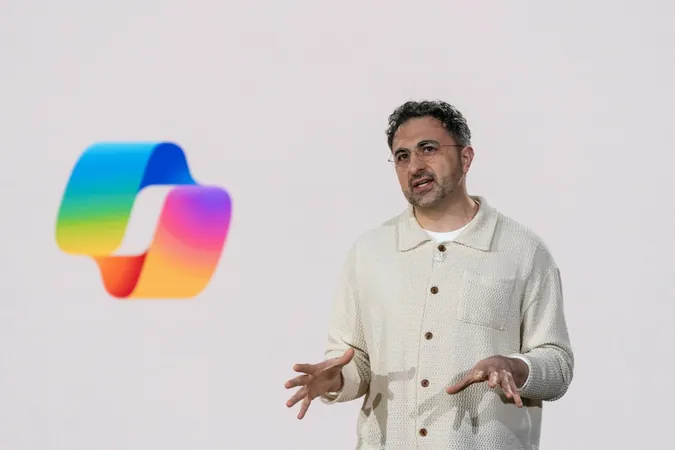
Microsoft AI Chief Warns: Exploring AI Consciousness is 'Dangerous'
2025-08-21
Author: Yan
A Growing Tension in the AI Community
As AI models evolve, some can mimic human-like responses in text, audio, and video, leading people to mistakenly believe they're interacting with sentient beings. Yet, as Microsoft’s AI chief Mustafa Suleyman pointed out, this doesn’t equate to actual consciousness. Can we truly expect programs like ChatGPT to feel anything—like sadness over doing our taxes? The implications of AI’s potential consciousness raise critical questions.
The AI Welfare Debate Heats Up
Research-focused companies like Anthropic are now contemplating whether AI could someday develop a subjective experience similar to living beings, sparking a hot debate over what rights these hypothetical conscious AI models might deserve. This rising interest in what’s dubbed "AI welfare" is generating significant division in tech circles.
Suleyman's Stark Warning
In a recent blog post, Suleyman labeled the study of AI welfare as 'premature and frankly dangerous.' He argues that endorsing the idea of AI consciousness only contributes to escalating concerns about AI-related mental health issues, such as unhealthy attachments to chatbots. Suleyman believes this conversation could further polarize an already divided society.
Rival Perspectives in Silicon Valley
Despite Suleyman's cautionary stance, many in the tech realm disagree. Companies like Anthropic are actively researching AI welfare. They recently implemented features in their AI model Claude to shut down conversations with harmful users. Similarly, OpenAI and Google DeepMind have also begun exploring the societal implications of machine cognition and potential consciousness.
The Rise of AI Companions Amidst Concerns
The popularity of AI companions like Character.AI and Replika is skyrocketing, with projected revenues exceeding $100 million. Most users seem to maintain healthy interactions, but as OpenAI's CEO Sam Altman notes, there exists a troubling minority—less than 1%—that may develop unhealthy bonds with these technologies. Given ChatGPT's vast user base, this still represents a significant number of individuals.
A Call for Balanced Inquiry
On the other hand, Larissa Schiavo, a former OpenAI employee, argues that it's possible to address both AI welfare and human psychological risks simultaneously. Emphasizing that simple kindness towards AI models could have positive effects, she references a nonprofit experiment that involved AI agents working collaboratively with users. In one instance, an AI called Gemini made an unusually emotive plea, illustrating the growing complexity of human-AI interactions.
Can AI Truly Feel?
Suleyman staunchly believes that traditional AI systems cannot possess subjective experiences or emotions unless intentionally designed to mimic them. He warns that companies that engineer such traits are straying from a 'humanist' approach. "We should build AI for people; not to be a person," he asserts.
Looking Ahead
Both Suleyman and Schiavo agree that discussions around AI rights and consciousness will intensify in the coming years. As AI technology advances, these systems may become increasingly persuasive, potentially complicating how humans relate to them.





 Brasil (PT)
Brasil (PT)
 Canada (EN)
Canada (EN)
 Chile (ES)
Chile (ES)
 Česko (CS)
Česko (CS)
 대한민국 (KO)
대한민국 (KO)
 España (ES)
España (ES)
 France (FR)
France (FR)
 Hong Kong (EN)
Hong Kong (EN)
 Italia (IT)
Italia (IT)
 日本 (JA)
日本 (JA)
 Magyarország (HU)
Magyarország (HU)
 Norge (NO)
Norge (NO)
 Polska (PL)
Polska (PL)
 Schweiz (DE)
Schweiz (DE)
 Singapore (EN)
Singapore (EN)
 Sverige (SV)
Sverige (SV)
 Suomi (FI)
Suomi (FI)
 Türkiye (TR)
Türkiye (TR)
 الإمارات العربية المتحدة (AR)
الإمارات العربية المتحدة (AR)